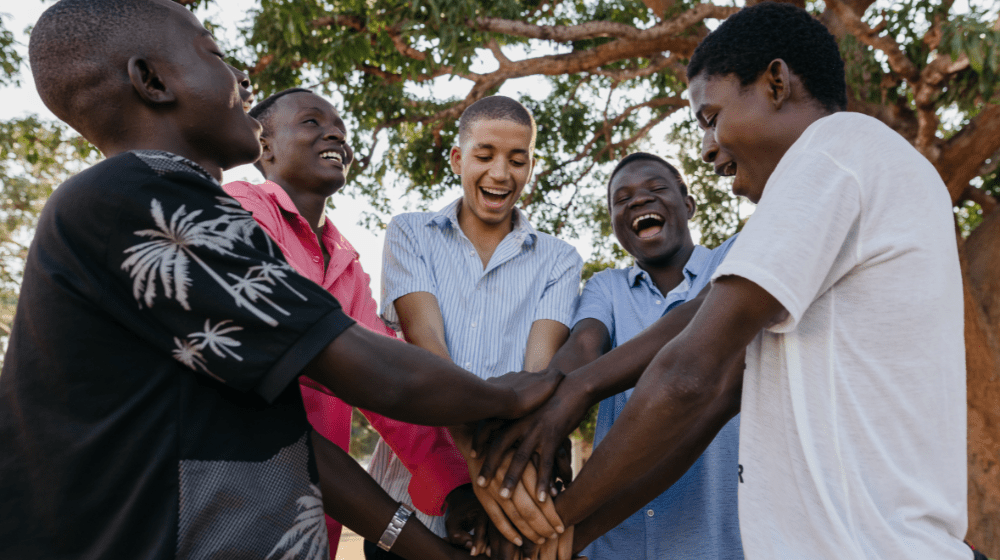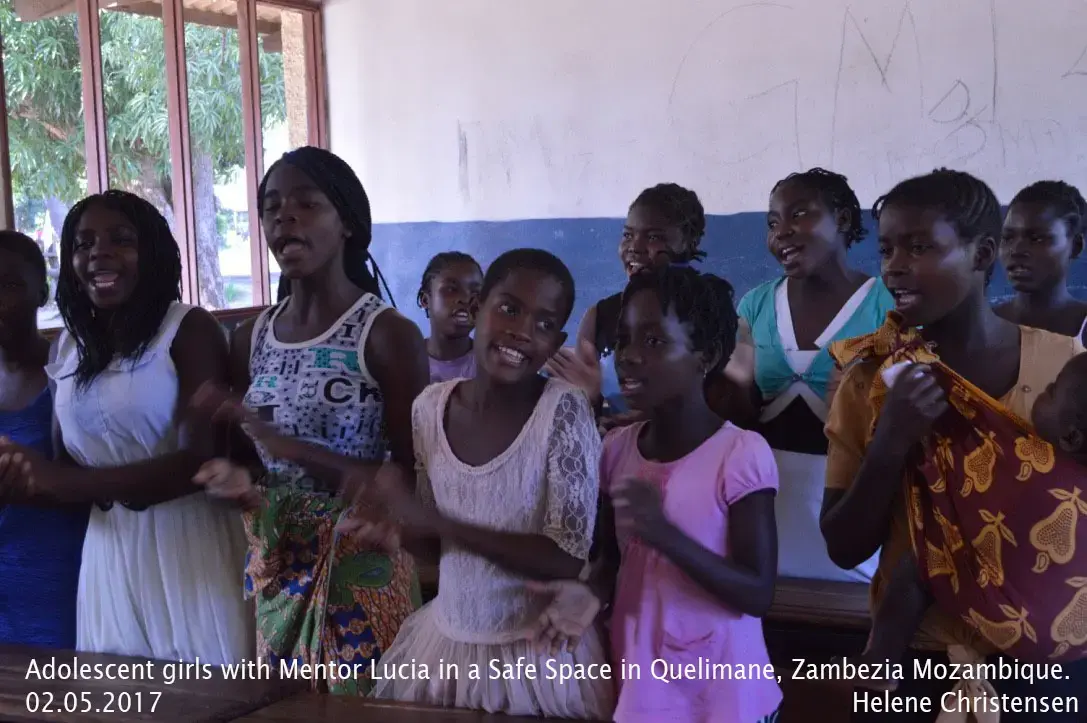Niassa and Nampula provinces, Mozambique — In Mozambique, traditional ideas about masculinity can sometimes emphasise authority, dominance, and control. However, a decisive shift is emerging: men of all ages are stepping forward to promote respect, empathy, and partnership. Through community dialogues, youth engagement programmes, and gender-based violence prevention initiatives, harmful stereotypes about male roles are changing.
As Mozambique grapples with significant challenges related to gender-based violence (GBV), including intimate partner violence, sexual assault, and early or forced marriage, male engagement addresses the root causes by transforming societal norms around masculinity that associate it with power and control. In the northern provinces of Nampula and Niassa, the Building Resilience for Women and Girls in the North Project (under the ResiNorte programme) and the Global Programme to End Child Marriage (GPECM) have made male engagement a cornerstone of positive masculinity, targeting behaviours that perpetuate GBV and child marriage.
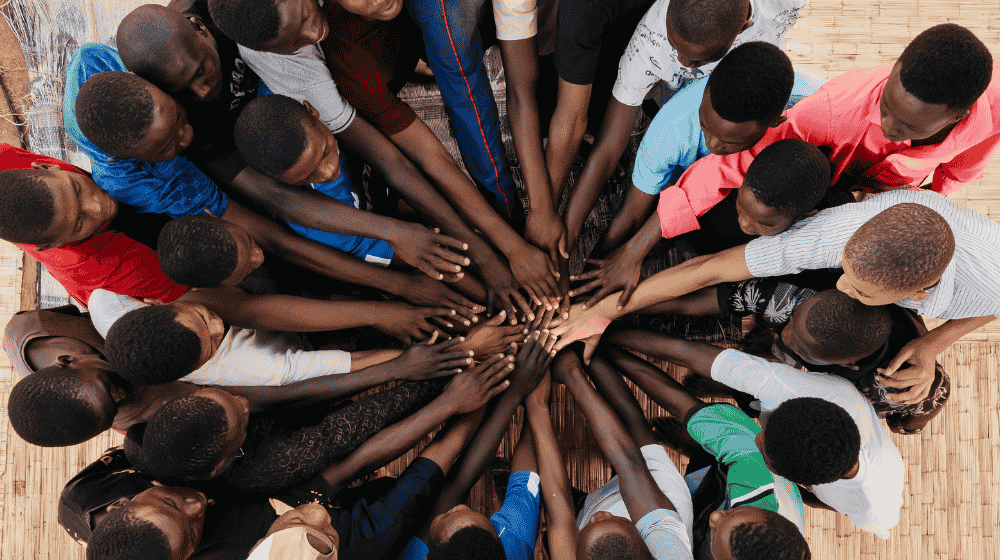
A Ripple Effect Of Change
Child marriage remains a pressing challenge in Mozambique, infringing on the rights and autonomy of millions of girls. With one of the highest child marriage rates globally and the second highest in Eastern and Southern Africa, the practice is fueled by gender inequality, poverty, and entrenched cultural norms. Child marriage robs girls of their childhood, education, and opportunities while exposing them to severe health risks and early pregnancies. Despite these challenges, Mozambique has made positive strides in adopting the Law on Preventing and Combating Premature Unions (2019). These legislative milestones mark a significant step toward safeguarding girls' rights and empowering them to lead healthier, more fulfilling lives.
The promotion of positive masculinities and male engagement sessions is a strategic approach to prevent and reduce GBV, as changing harmful gender norms is essential for lasting impact. Traditional ideas of masculinity can reinforce cycles of violence and inequality. UNFPA works to encourage men to become allies in protecting the rights of women and girls, helping to create safer, more supportive communities. Through these sessions, men and boys participate in community dialogues and mentorship, learning to embrace healthy, non-violent roles and reject harmful stereotypes.
This Programme brings awareness to more people, not just young people, but a lot of the older generation as well.
Adolescents and men lead this shift, encouraging one another to act as supportive partners, brothers, sons, friends and fathers. Kutenga, a Civil Society Organisation and UNFPA partner of the Global Programme to End Child Marriage promotes nonviolent and egalitarian roles. Derived from local languages spoken in Northern Mozambique, such as Makua and Emakhuwa, the word “Kutenga” means "to be alert" or "to take responsibility." This culturally resonant term symbolises a call to action, urging men and boys to protect and promote gender equality and rights. It builds a network of male mentors who reach young boys and older generations, creating a ripple effect of change.
Pedro da Conceicção Manuel, Kutenga’s representative in Nampula, has seen the programme expand from 45 to 75 mentors, reaching remote areas. "This programme brings awareness to more people, not just young people, but a lot of the older generation as well," he says.
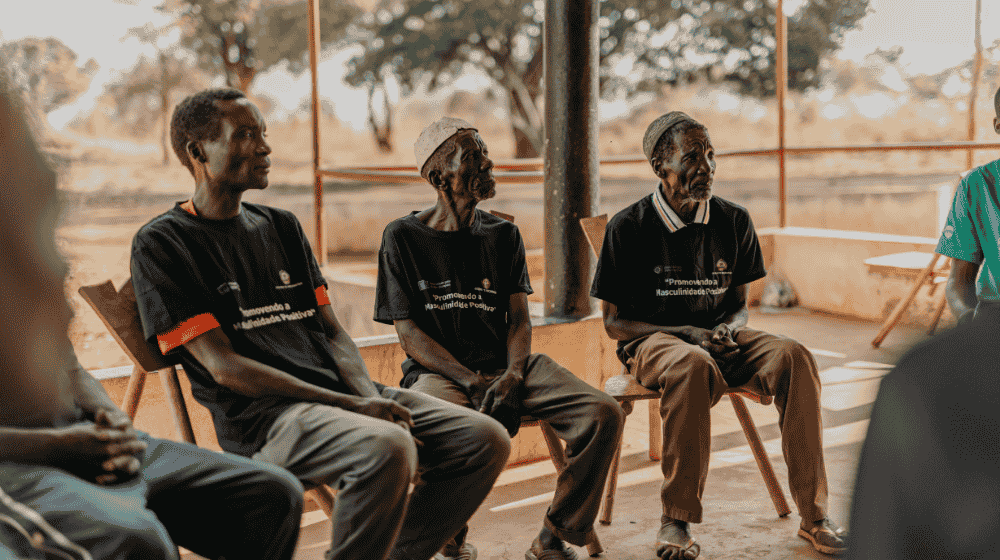
Likewise, through Civil Society Organisations partnering with UNFPA like the Girl Child Rights (GCR) initiative, mentors emphasise respectful, empathetic, and supportive roles by engaging men and boys as active allies, reshaping masculinity into a force for community resilience.
These sessions found me at a time when I truly needed it. I learned golden lessons. I now understand the importance of communicating better and solving conflicts peacefully. Knowing my role in society has been life-changing.
Galileu Papo-Seco Paconete, a mentor for Girl Child Rights, has worked in Mecula, Niassa, since 2017, where he lives with his wife and two sons. Coming from a place where male dominance was often seen as the norm, Galileu’s shift in perspective now inspires men around him, including his son, who also participates in sessions. His journey into male engagement and positive masculinity began when he saw an opportunity posted at a hospital and decided to apply. “These sessions found me at a time when I truly needed it. Even during the training phase, I learned golden lessons," he shares. His training changed his perspective on communication and conflict resolution. “I now understand the importance of communicating better and solving conflicts peacefully. Knowing my role in society has been life-changing”, Galileu shared. Now committed to sharing these messages, Paconete draws on his knowledge, experiences as a mentor, and the lessons he has gained to reach more people, particularly in remote areas.
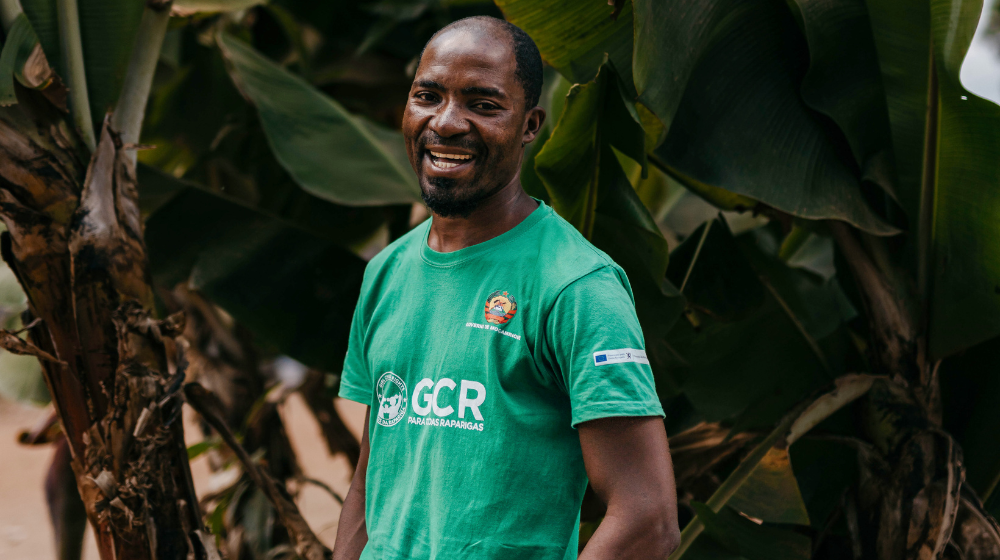
Breaking the cycle
Cultural norms in Mozambique often limit girls’ opportunities, confining them to domestic roles. According to the 2017 Census, illiteracy among rural women stands at 62%, and 45% of school-age girls have never attended school, restricting their opportunities beyond traditional agricultural roles and perpetuating cycles of poverty and inequality. Women play a significant role in rural activities, particularly in agriculture, where employment opportunities are more accessible compared to urban areas. Although women constitute 51% of Mozambique's population, they face significant challenges, particularly in rural regions. When fathers, older male community members and leaders champion girls’ education and rights, it empowers girls to access educational and economic opportunities, ultimately contributing to community development and breaking cycles of poverty.
Today, I like being around young men to teach them about treating women respectfully.
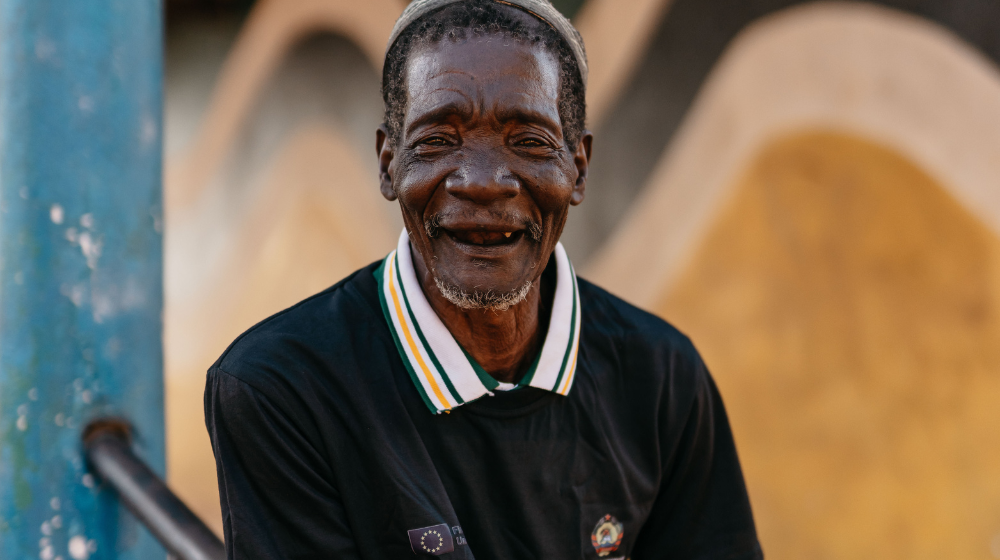
Elias Dariane joined the male engagement group in Marrupa, in Niassa province, to understand household violence and find ways to contribute positively at home. “I didn’t know that I couldn’t help women with domestic chores,” he reflects, acknowledging the cultural norms related to gender roles that he once accepted. Now, he takes pride in engaging with younger men, guiding them toward treating women respectfully. “Today, I like being around young men to teach them about treating women respectfully,” Elias shares.
This generational shift promotes safer environments. With a growing network of mentors and advocates, positive masculinity is helping to create a future where Mozambican girls can grow up free from violence and early marriage. Mozambique’s journey toward ending GBV and child marriage is far from complete, but the dedication of men and adolescents is transforming communities and building a foundation for lasting equality. By embracing positive masculinity, participants challenge norms that once supported violence, redefining what it means to be a man in Mozambican society—one conversation, mentor, and community at a time.
The Global Programme to End Child Marriage, led by UNFPA and UNICEF, works to eliminate child marriage by empowering girls, transforming communities, and fostering supportive policies. It is generously funded by the Governments of Belgium, Canada, Italy, the Netherlands, Norway, the United Kingdom, and the United States of America, along with the European Union and Zonta International.
The Building Resilience for Women and Girls in the North, a project under the Resinorte Programme, funded by the European Union, strengthens resilience among women, adolescent girls, and youth affected by conflict in northern Mozambique. From 2023 to 2025, ResiNorte will improve access to life-saving Sexual and Reproductive Health (SRH) and address gender-based violence (GBV), ensuring a comprehensive response to GBV. The Programme empowers women economically, offering vocational training and microfinance opportunities to foster gender equality and sustainable development in conflict-impacted regions like Cabo Delgado, Niassa, and Nampula.

